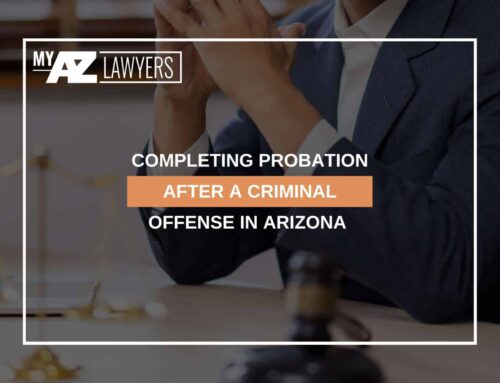Table Of Contents
How a Mesa Criminal Case Moves through the AZ Court System

How a Mesa Criminal Case Moves through the AZ Court System
There are three types of courts in the Arizona court system, Limited Jurisdiction Courts, Superior Court and the Court of Appeals. Each court serves a different purpose. Criminal cases are conducted in limited jurisdiction courts or superior court.
- In a Mesa criminal case, a crime has been committed. A police officer makes an arrest, either because he has reason to believe that person is guilty of a crime and has obtained a search warrant or because he has witnessed the crime.
- After a person has been arrested, the law states that they must be brought before a judge for an initial appearance within the first twenty-four hours following the arrest. The initial appearance is the point where the judge informs the defendant what they have been charged with and informs them of their rights, such as the right to an attorney. If the defendant cannot afford an attorney one will be provided for them by the court.
- The next step may be a preliminary hearing where the judge will examine the evidence collected by the prosecuting attorney and the defendant’s attorney in order to determine whether there is enough evidence to hold the defendant for trial. If so, a date will be set for the arraignment.
- The arraignment is when the defendant pleads guilty, not guilty or no contest. If the defendant pleads guilty or no contest a trial date will be set.
The main segments of a trial consist of:
- Opening statements by the attorneys from both sides
- The questioning, or examination of witnesses by the attorneys from both sides
- The admission and presentation of evidence, such as documents or weapons
- A defendant is presumed to be innocent, and it is the job of the prosecuting attorney to prove them guilty beyond a reasonable doubt.
- It is the job of the defense attorney to prove that the defendant is not guilty of the crime or at least to create reasonable doubt as to their guilt.
- After the presentation of all evidence and witnesses the prosecution will rest its case. At this point each side is given the opportunity to present closing arguments.
- The judge will then instruct the jury, and explain the laws that apply to the case.
- The jury will move to the jury room to discuss the evidence presented until they reach a verdict.
- The judge or the clerk of the court will read the verdict. If the verdict is not guilty, the defendant is immediately released. If the verdict is guilty, a sentencing date will be set.
- At the sentencing hearing, the judge will hear testimony from the attorneys from both sides concerning the punishment they feel the defendant deserves. The judge will then determine the sentence. If the death sentence is to be applied the law states that a jury rather than the judge should decide this.
- Upon conviction, the defendant may choose to appeal to the court of appeals. If sentenced to death, an appeal will automatically be filed with the Supreme Court.
If you have been accused of a crime, you are entitled to a fair trial and proper legal representation. My AZ Lawyers employs highly trained criminal defense attorneys with years of trial experience under their belt. Our criminal defense lawyers will fight for your rights to help you achieve the best possible outcome for your case.
Talk to your lawyer before you talk to anybody else. Call us today!
Published By:
My AZ Lawyers
Mesa Location:
1731 West Baseline Rd., Suite #100
Mesa, AZ 85202
Office: (480) 448-9800
Glendale Location:
20325 N 51st Avenue Suite #134, Building 5
Glendale, AZ 85308
Office: (602) 509-0955
Tucson Location:
2 East Congress St., Suite #900-6A
Tucson, AZ 85701
Office: (520) 441-1450
Avondale Location:
12725 W. Indian School Rd., Ste E, #101
Avondale, AZ 85392
Office: (623) 399-4222











